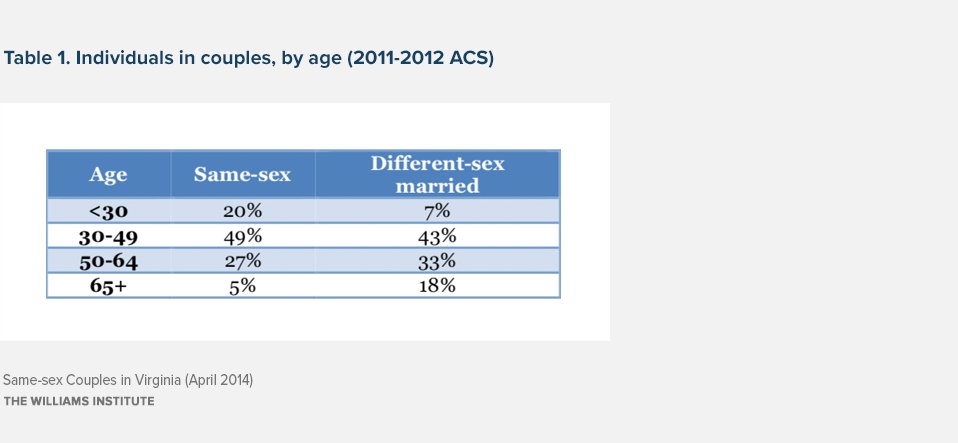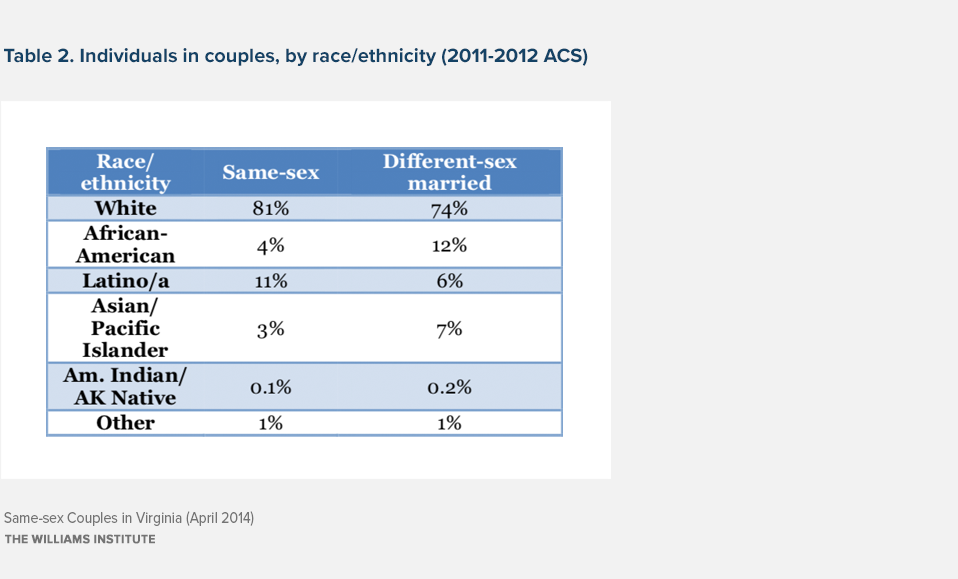Introduction
This research brief offers analyses of data from the US Census Bureau’s American Community Survey (ACS) to describe the characteristics of same-sex couples and their families in Virginia compared to their different-sex married counterparts.
Same-sex couples are identified in the ACS when an adult in the household is identified as either the “husband/wife” or “unmarried partner” of the person who filled out the survey, referred to as the householder, and both partners or spouses are of the same-sex. These analyses combine ACS Public Use Microdata Sample (PUMS) files from 2011 and 2012, yielding sample sizes of:
- 240 same-sex couples
- 66 children under age 18 being raised by same-sex couples
- 333,362 different-sex married couples
- 24,919 children under age 18 being raised bydifferent-sex couples
Same-sex couples
Tabulations from Census 2010 show that there are 14,243 same-sex couples living in Virginia. These couples were identified in all but one of Virginia’s counties. The majority of same-sex couples are female (51%).
Age
The average age of individuals in same-sex couples in Virginia is more than seven years younger than that of different-sex married couples—43.0 and 50.4 years old, respectively. Table 1 shows the percentages of adults in same-sex and different-sex married couples by age group. The lowest percentage of same-sex couples is in the 65 and over group (5%) while the lowest percentage of different-sex married couples is in the youngest age group of those less than age 30 (7%).

